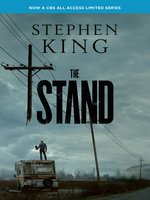Chapter 1
CHAPTER 1
Hapscomb's Texaco sat on Number 93 just north of Arnette, a pissant four-street burg about 110 miles from Houston. Tonight the regulars were there, sitting by the cash register, drinking beer, talking idly, watching the bugs fly into the big lighted sign.
It was Bill Hapscomb's station, so the others deferred to him even though he was a pure fool. They would have expected the same deferral if they had been gathered together in one of their business establishments. Except they had none. In Arnette, it was hard times. In 1980 the town had had two industries, a factory that made paper products (for picnics and barbecues, mostly) and a plant that made electronic calculators. Now the paper factory was shut down and the calculator plant was ailing—they could make them a lot cheaper in Taiwan, it turned out, just like those portable TVs and transistor radios.
Norman Bruett and Tommy Wannamaker, who had both worked in the paper factory, were on relief, having run out of unemployment some time ago. Henry Carmichael and Stu Redman both worked at the calculator plant but rarely got more than thirty hours a week. Victor Palfrey was retired and smoked stinking home-rolled cigarettes, which were all he could afford.
"Now what I say is this," Hap told them, putting his hands on his knees and leaning forward. "They just gotta say screw this inflation shit. Screw this national debt shit. We got the presses and we got the paper. We're gonna run off fifty million thousand-dollar bills and hump them right the Christ into circulation."
Palfrey, who had been a machinist until 1984, was the only one present with sufficient self-respect to point out Hap's most obvious damfool statements. Now, rolling another of his shitty-smelling cigarettes, he said: "That wouldn't get us nowhere. If they do that, it'll be just like Richmond in the last two years of the States War. In those days, when you wanted a piece of gingerbread, you gave the baker a Confederate dollar, he'd put it on the gingerbread, and cut out a piece just that size. Money's just paper, you know."
"I know some people don't agree with you," Hapsaid sourly. He picked up a greasy red plastic paper-holder from his desk. "I owe these people. And they're starting to get pretty itchy about it."
Stuart Redman, who was perhaps the quietest man in Arnette, was sitting in one of the cracked plastic Woolco chairs, a can of Pabst in his hand, looking out the big service station window at Number 93. Stu knew about poor. He had grown up that way right here in town, the son of a dentist who had died when Stu was seven, leaving his wife and two other children besides Stu.
His mother had gotten work at the Red Ball Truck Stop just outside of Arnette—Stu could have seen it from where he sat right now if it hadn't burned down in 1979. It had been enough to keep the four of them eating, but that was all. At the age of nine, Stu had gone to work, first for Rog Tucker, who owned the Red Ball, helping to unload trucks after school for thirty-five cents an hour, and then at the stockyards in the neighboring town of Braintree, lying about his age to get twenty back breaking hours of labor a week at the minimum wage.
Now, listening to Hap and Vic Palfrey argue on about money and the mysterious way it had of drying up, he thought about the way his hands had bled at first from pulling the endless handtrucks of hides and guts. He had tried to keep that from his mother, but she had seen, less than a week after he started. She wept over them a little, and she hadn't been a woman who wept easily. But she hadn't asked him to quit the...





